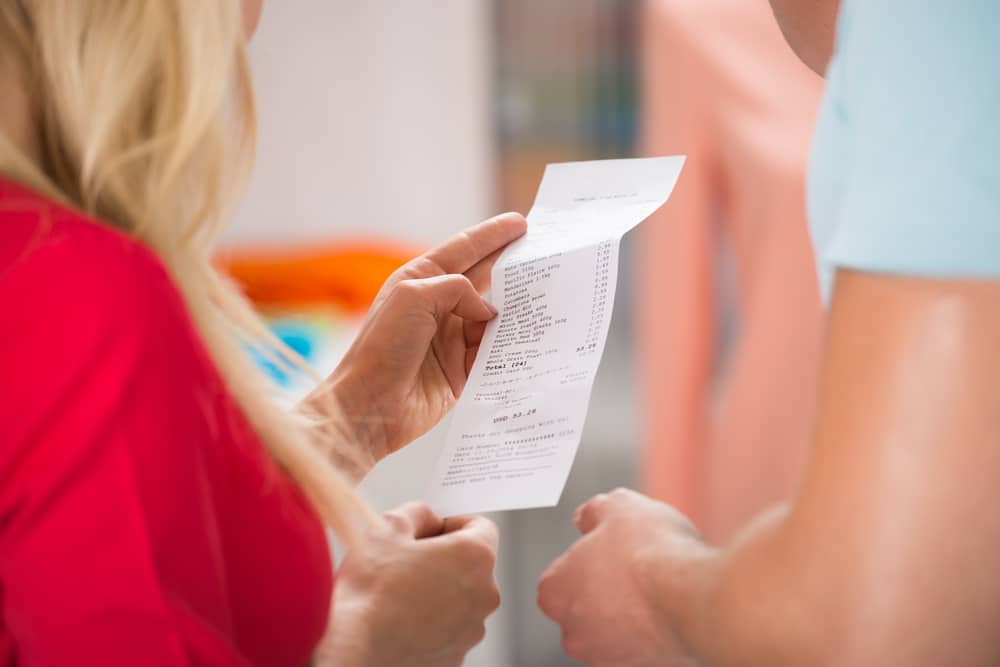Jasmine Birtles
Your money-making expert. Financial journalist, TV and radio personality.

Apart from the promise of warmer weather and longer days, the change of season brings another great delight: sales shopping! Unfortunately, bargain-hunting Brits could be left out of pocket in the seasonal sales due to common consumer rights myths.
Need an example? The mistaken belief that shops have to sell goods at the displayed price is just one of many.
In order to help you navigate these uncertain waters, the good folks over at Promotional Codes delved into the consumer rights myths most of us believe.
Take a look at the nine they’ve debunked. Happy shopping!

The biggest consumer rights myth of all is the idea that physical shops must sell items at the displayed price.
In fact, if the displayed price is a mistake, shops do not have to honour it. They often do, though, as a goodwill gesture.
This is because in law, a contract – i.e. an offer and an acceptance – has not been made until the item is actually paid for.
This protects shoppers from being bound by an ‘acceptance’ of the offer – and therefore being obliged to purchase – just because they pick an item up or take it to the till.
In short, a shop does not have to sell you an item at displayed price if it’s a genuine error. Of course, it is illegal to mislead consumers deliberately.

If there’s nothing wrong with the item and you’ve just decided you don’t like it, you don’t actually have an automatic right to a refund. Most shops do have policies for returns and will honour them, even though they don’t legally have to, and will often extend the return period after Christmas. Keep the receipts and original packaging.
Some goods, such as underwear and earrings for pierced ears, may not be returnable even under a shop’s policy.

As we know, shops don’t have to refund you. They probably will, though, if you can prove purchase and the goods are unused. If a shop is prepared to refund or exchange a gift for its recipient, they’ll probably want a gift receipt.

Surprisingly, online shopping actually may offer you more security.
You legally have a 14-day ‘cooling off’ period for online purchases from businesses (not private individuals), starting from the day you receive the item. This is to enable you to see the product properly before you make up your mind, so you can return it for any reason.
There are exceptions, such as if the goods are bespoke or perishable.
Just be aware of the fact that, while an in-store contract is made when you pay, you may not have your contract until your item has been sent to you when shopping online. This means you might not have a contract even if you’ve received a confirmation email, and your order could be cancelled if the price was mistaken. You’ll need to check the terms and conditions to see when your contract would begin.

While you will most likely have to prove your purchase in one way or another, you don’t need the actual receipt. You could also use a bank or credit card statement.

While shopping up a storm during seasonal sales, you may notice some shops have signs up everywhere stating that sale items cannot be returned. Of course, this is understandable, as the shop is trying to get rid of this stock. However, if the item doesn’t satisfy your needs as a consumer – it’s faulty, soiled or doesn’t fit properly – you do have the right to return it and receive a refund.

Yes – for goods and services costing between £100 and £30,000. Your credit provider will refund you if the firm folds before you get your goods, or if they’re faulty and the business refuses to rectify it.
Be careful with things like train tickets, as two single journeys could be classed as two transactions and might not meet the cost threshold individually. You would also not be covered if you chose not to take the journey.
There are exceptions to this protection, such as loans and balance transfers.

Nope! The seller has the legal responsibility to ensure delivery, not the courier. If your item doesn’t arrive within 30 days of purchase, or by a date you agree with the seller, they owe you a replacement or refund.

Under the National Rail Conditions of Travel, you are entitled to a full or partial refund if your train is cancelled or delayed.
In cases where you choose not to travel, you can claim a full refund. If you decide to continue with your journey you may be able to claim for partial compensation.
The compensation amount is different for each train company. The rules stipulate that as a minimum, if you are one hour late at your destination, you are entitled to:
In order to claim your refund or compensation, you would normally need to return your orginal ticket/proof of purchase/scan of the ticket to the retailer it was bought from within 28 days following the affected journey.
To find out more about the process, visit the National Rail website.
Read more:


Great article for consumers.